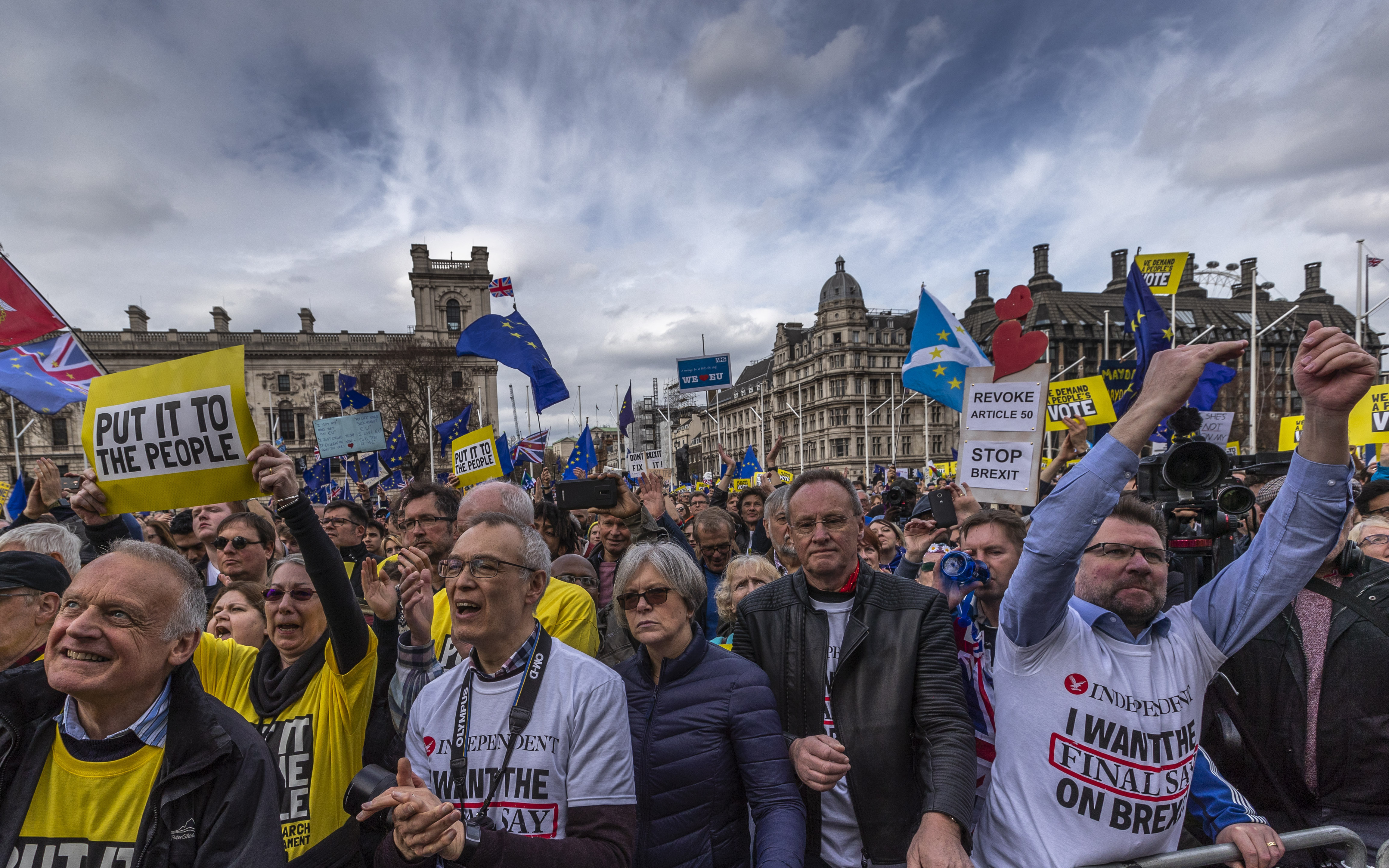Petitions and marches and angry exchanges on television – these are dark days in Brexitland. The million who marched in London felt they were heading towards the light at the end of the Brexit tunnel, but there is no guarantee it is there to be found.
We know there is a three-way clash of wills between prime minister, parliament and public. It is extremely hard to dive beneath the surface of all that turbulence to discover what has happened to the real issues of substance. Theresa May’s three red lines and the European Union’s four freedoms seem to belong to an earlier more rational stage in the Brexit process, when people were still trying to make sense of it all.
But we also know that without straight thinking there will be no answers, only more darkness. For instance, at the heart of the present turmoil is a dispute about trade policy. The issue received almost no attention at the time of the 2016 referendum, and very little subsequently. Tariffs and quotas, regulatory alignment and customs arrangements, do not make good headlines. One has to delve quite deeply into the inner pages of the Financial Times for any detailed discussion of them.
Yet trade policy is central to the issue of the Irish backstop – the complex arrangements designed to keep the border open and uninterrupted between Northern Ireland and the Republic. And trade policy is also said to offer the most likely route to a policy that a majority in the House of Commons might support.
One of Theresa May’s red lines – policy positions she was not prepared to negotiate away from – was regaining the freedom for the United Kingdom to make its own trade deals with other countries, in place of trade deals in which it shared by virtue of its membership of the EU. The case in favour of this was simply the fact that EU membership prevented Britain from reaching its own trade agreements. In other words the freedom to make trade deals is an expression of sovereignty.
But this is fallacious, as all trade deals have to be struck between equal partners. They cannot be imposed unilaterally. So national sovereignty is limited by the sovereignty of the other party. One cannot sell noisy lawnmowers to customers in country X if country X has laws limiting their noise levels. Nor is it likely that country X will allow importers to sell lawnmowers at such a price that would damage their domestic lawnmower industry. So they impose import duty, tariffs, to maintain a certain price, and regulations to ensure safety. If it wants to do business, the exporting country has to comply with them. It also has to comply with World Trade Organisation rules, which can be just as prescriptive as EU rules.
There is an even bigger fallacy, which has been nothing like sufficiently explored in the course of the Brexit debate. It is the expectation or promise that making independent trade deals with third countries will automatically bring benefits to the United Kingdom once it leaves the EU. The opposite is more likely, as the EU is a superpower in trading terms, able to negotiate on an equal footing with similar superpowers like the United States and China. Britain on its own has far less weight.
No reasons have been put forward by anybody, as far as I can see, to show that British trade deals will be better for Britain than existing trade deals struck by the EU, from which Britain has benefitted until now. No could they, as such trade agreements do not yet exist. In other words it is a bogus case. But there is one exception to this argument. Those who are keenest on Britain regaining the freedom to make its own trade deals are also keenest on getting rid of many of the regulations that British industry has to observe as part of the EU. Regulations cost money to comply with, so products become cheaper.
British lawnmower manufacturers would become free to make noisy lawnmowers, so they can sell more of them at a lower price. Sunday afternoons in a typical English suburbs will be that little bit less peaceful. But if they try to export them abroad they will run into domestic regulations in country X that prohibit mowers above a certain decibel level.
The point is this – there is no benefit to the UK from making separate trade deals unless it is coupled with deregulation. And anyone following the trade talks between Britain and the EU so far will have noticed repeated promises from the British side that regulatory standards – including health and safety – will not be lowered once Britain leaves the EU. It is called regulatory alignment.
It has been loudly proclaimed. But we should notice what is also being whispered – so as not to frighten the horses – namely that some time in the future regulatory alignment will be replaced with regulatory divergence. British lawnmower manufacturers will eventually be allowed to make noisier, and cheaper, lawnmowers. As the lawnmower slices off your toes, because the machine no longer has a safety guard, you can shout “Hurray for British sovereignty, it was worth it!” Or not. Try and export them and they will be turned back at the customs barrier, on the grounds they are unsafe.
So the freedom to make “our own” trade deals, one of the red lines of Theresa May’s entire approach to Brexit, is somewhat flawed and somewhat dishonest. There is no gain for the national interest to be had. And once that is realised, a solution to the current Brexit impasse suddenly appears. Britain agrees not only to observe EU regulatory standards in perpetuity, but Britain and the EU also agree not to impose import or export duty on each other’s goods. It is called a customs union.
CLIFFORD LONGLEY'S BREXIT WATCH:
Clifford Longley will be writing regular updates on Brexit over the coming weeks. To read more click on the links below.
Dark days in Brexit land
If a 'no deal' Brexit is ruled out, what next?
Revocation of Brexit on the horizon?
Could Brexit now be abandoned altogether?
Did May fundamentally misunderstand the Brexit referendum result?



 Loading ...
Loading ...